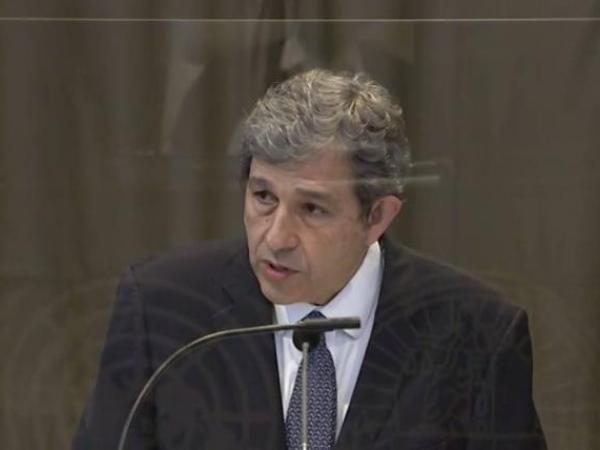The rights of the raizal population on the fishery in Colombian waters was ratified with the ruling of the International Court of Justice (ICJ) on the file between Nicaragua and Colombia due to the geographical limits of the Archipelago of San Andrés, Providencia and Santa Catalina.
(Read: Fishing status of the Raizal community in the archipelago is clarified).
In dialogue with Portfolio, Manuel José Cepeda, co-agent of Colombia in The Hague, He explained the scope of this ruling and the historical acknowledgments of the ICJ on the Raizal population and their economic rights.
As this newspaper learned, the national government is already working on a decree that would regulate the fishing activity in the archipelago and which would be published in the coming weeks.
In terms of fishing, are the results satisfactory for Colombia as has been shown in other aspects?
In terms of fishing, the ruling has several positive consequences for Colombia. First, the Navy can continue to make a presence in the area. Nicaragua tried to remove the Navy but could not. This is very important because the Navy can continue to offer accompaniment and protection to fishermen while they navigate towards the fishing banks located in Colombian waters.
Second, regarding the raizales, the ruling recognizes its existence as a fishing village that has a special relationship with the sea that forms part of its cultural identity. The ruling guarantees the access of Raizal fishermen to their traditional fishing banks located in Colombian waters. This allows them to freely navigate to said banks and return without Nicaragua being able to hinder them or take away their fish.
Third, the ruling went further because it admitted the possibility that fishermen could access fishing banks located in non-Colombian waters. For that he invited the parties to reach an agreement, something to which Nicaragua had refused.
Fourth, regarding non-raizal fishing, Colombia may continue to authorize fishing in Colombian waters. Finally, the Court rejected Nicaragua’s request to order Colombia to pay compensation.
It also rejected the request that the Court open a new phase to identify the economic damages and assess the amount of a possible compensation.
(Besides: Fishermen in San Andrés await decree after ICJ ruling).
Hague Judgment
What does the recognition of the ICJ mean for the Raizales?
It has great significance because in the 2012 ruling the Raizales were not recognized. In addition, the traditional fishing banks located in Colombian waters are the most frequently used. Having saved the integral contiguous zone, not only was the reintegration of the Archipelago obtained, but a continuous circulation zone was established between all the islands near San Andrés, Providencia and Santa Catalina.
What follows after the invitation to negotiate?
What follows depends on political factors because at this time the conditions are not ripe for starting talks on a possible fishing agreement. The Court’s warrant deals only with fishing.
(Read: What does Colombia win and what does it lose after the ruling in The Hague).
In terms of limits, the ruling respected what the Colombian Constitution says, it does not make any exhortations and it rejected Nicaragua’s request that the Court keep its jurisdiction open and do a kind of monitoring of compliance with the 2012 ruling on delimitation.
Nicaragua failed in its attempt to keep this case open. As of April 21, this case was closed; it is very positive for Colombia and creates a favorable context in terms of fishing as well as in other issues.
BRIEFCASE







